Ridesharing
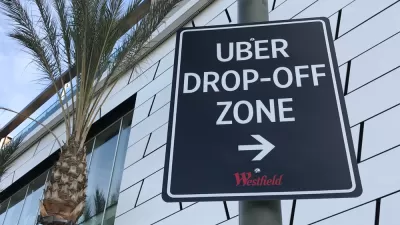
Study: Uber and Lyft Trips Cost the Planet More Than Trips in Personal Vehicles
The cost of 'deadheading'–the time ride-hailing drivers spend looking for fares–offsets any environmental benefits created by the industry, despite early claims that the apps would reduce congestion and air pollution.
Poor Returns for L.A.'s Transit on Demand Pilot
Similar to microtransit on demand programs in other cities, Los Angeles' ongoing experiment is proving to be very expensive (for the public) for the benefit of very few riders.
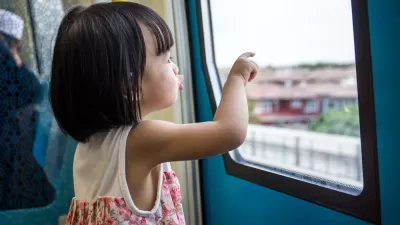
Life With Kids and No Car—How Is It Done?
CityLab asked readers in carless households with kids about how they get around and the challenges they face.
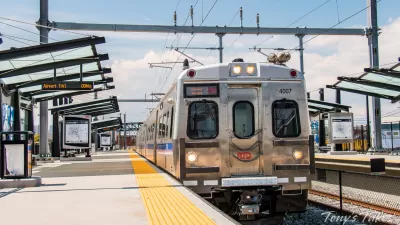
Uber Partners With Transit in Denver
Uber is making it easier for travelers to access transit by offering the option to purchase tickets through its app.

When Rideshare Serves as Transit, Success Brings Risks
Innisfil, Ontario, decided to use Uber instead of starting bus service. The program took off but so have the costs, and now cutbacks need to be made.
L.A. Metro Jumps Into the Ridesharing Business
The Los Angeles County metropolitan Transportation Authority announced the launch of a one-year pilot program for on demand ridesharing, otherwise known as microtransit.
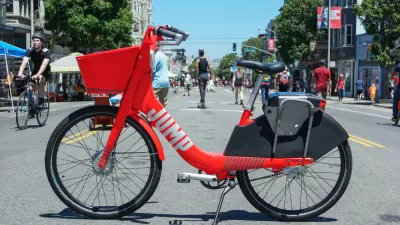
Uber Wants to Make Urban Mobility More Sustainable
Uber plans to support sustainable mobility by funding advocacy efforts, sharing data, and offering bike-share service.
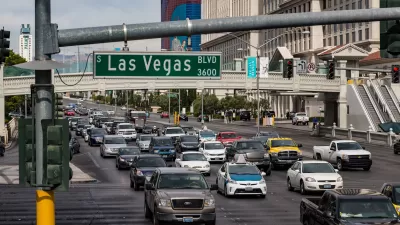
In Las Vegas, Ridesharing and Transit Complement and Compete
A look at transportation trends in Las Vegas suggests a surprising relationship between ridesharing and transit.
AAA Study: Auto Ownership More Cost-Effective Than Ride-Hailing
Even after factoring in insurance, parking, depreciation, fuel, repair, maintenance and licensing, urban dwellers would pay half the costs to travel, on average, nearly 11,000 miles annually in their own new car rather than relying on ride-hailing.
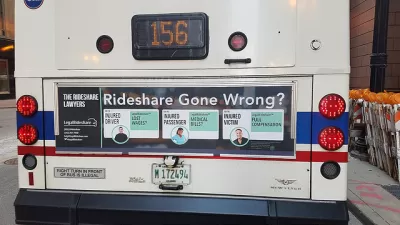
Study Finds UberPOOL Adds to City Traffic by Competing with the Subway
Past studies have shown how ride hailing services have added to congestion. A new study by Bruce Schaller suggests that even ride shares add to traffic, because they pull riders off of more efficient transit options like public transit.
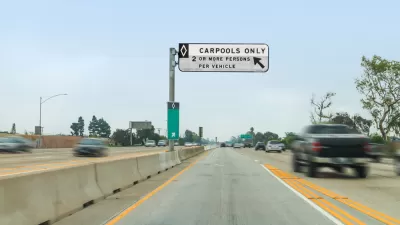
How Lyft and Uber Can Fix—Not Cause—Congestion
While evidence mounts that Uber and Lyft are stealing rides from public transit, there's still a chance for ride-hailing apps to do more to help than hurt congestion. The key: using ride-hailing apps to carpool.

Los Angeles to Test New 'Mobility on Demand' Partnership
The Federal Transit Administration has offered the Los Angeles County Metropolitan Transportation Authority a $1.35 million grant to partner with ridesharing app Via on first-last mile solutions.

Bridj Comes to a Halt
Bridj's bet that it could, well, bridge ride-hailing and public transit didn't pay off. Lacking new investment, the company is shutting down.
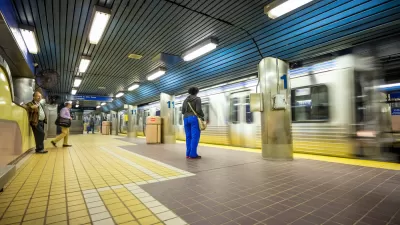
Public Transit Must Evolve to Survive
Ride hailing apps have changed the way people travel. Though public transit may lose ridership to these services, transit should also learn from technological advancements and use those insights to improve transit service.
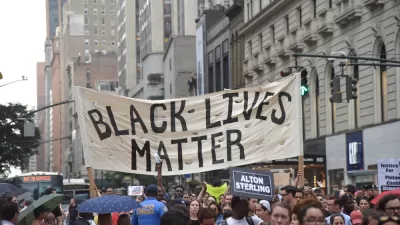
On Driving (and Hailing, and Ridesharing) While Black
Two studies bear out the idea that Black people face continued discrimination in transportation. They drive cautiously to avoid discriminatory traffic enforcement, and they're less likely to get picked up by rideshare.
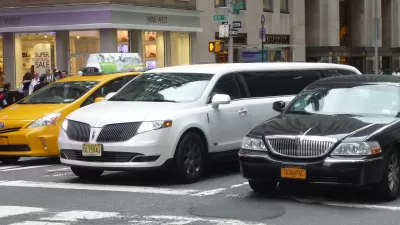
Transportation Network Companies Increase Mobility for Underserved Communities
A recent op-ed posted here warned against new transportation technologies and instead encouraged cities to invest in public transit and walkable communities. However, transportation network companies claim to have increased transportation equity.
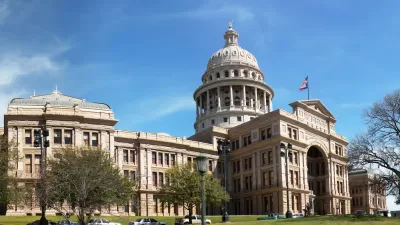
Op-Ed: Why Uber Wasn't Welcome in Austin
In the spirit of civic self-congratulation, Austin resident Richard Parker writes about how the transportation network company giants canceled service after losing a referendum vote. He ascribes this victory to the city's enduring contrarian streak.

Uber's Impact on the New York Rush Hour
Researchers found a small uptick in Manhattan traffic during rush hour, as Uber gains more riders from 4 to 7 p.m. than taxis lose. Uber also holds general sway over the other boroughs when it comes to for-hire vehicles.

Uber-Noxious
An op-ed appeals to a customer base that doesn't understand the ways in which "sharing economy" companies resemble Wal-Mart.
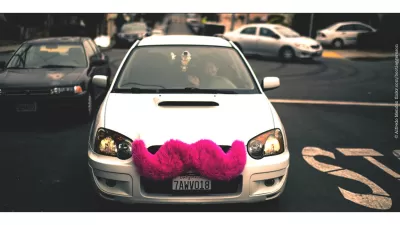
Report: Transportation Network Companies Would Benefit St. Louis
According to a Deloitte report, St. Louis commuters could save upwards of $220 million a year, with an additional $493 million in regional road construction savings. All the city needs to do is lift restrictions on rideshare.
Pagination
Urban Design for Planners 1: Software Tools
This six-course series explores essential urban design concepts using open source software and equips planners with the tools they need to participate fully in the urban design process.
Planning for Universal Design
Learn the tools for implementing Universal Design in planning regulations.
Heyer Gruel & Associates PA
JM Goldson LLC
Custer County Colorado
City of Camden Redevelopment Agency
City of Astoria
Transportation Research & Education Center (TREC) at Portland State University
Camden Redevelopment Agency
City of Claremont
Municipality of Princeton (NJ)


































